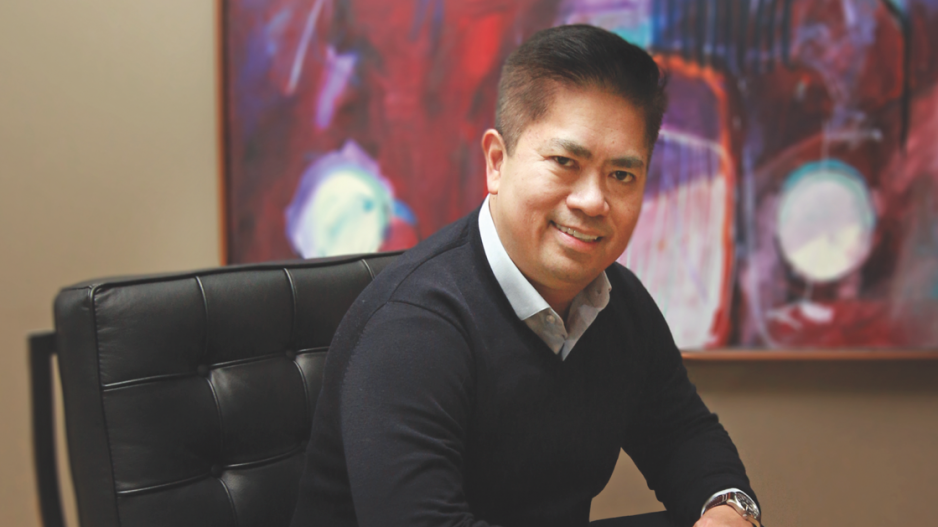The cost of health care in the U.S. is the stuff of nightmares, with even a basic doctor’s visit requiring a patient to pay a fee of between $100 and $300 under the co-pay arrangements many insurers have. The co-pay fee is effectively the deductible for health-care services, and with a day’s stay in emergency costing up to $30,000, most patients don’t mind.
But the rise of the sharing economy has created an opportunity for companies such as Teladoc Inc. of Purchase, New York, to connect patients with doctors who give them the advice they need without an emergency room visit. The service costs $9.95 a month and has allowed insurers to offer low-cost coverage to plan members.
“Within 10 minutes [they] have access to medical care, evaluation, support, and they do that through an app. And what we found is they can take care of about 70% of all the things that they need a doctor for,” explained Paolo Kalaw, founder and CEO of Nimbyx Ltd., which provides the platform supporting the service. “You eliminate that backlog of people who actually don’t need to go to a doctor.”
Teladoc serves 16 million people, with participating doctors in every state. Doctors receive a set fee for each consultation, while insurance brokers such as Hub International Ltd. and underwriter Chubb Group are able to offer customers a cost-effective service.
“We work with them to design the products and build a portfolio of products that we can deliver to the consumer,” Kalaw said. “We’re delivering these insurance services digitally and disrupting the whole value chain in the United States.”
Disruption is a key word for Kalaw, who entered the field in response to what he was seeing in the dental business. Kalaw also owns Frontier Dental Laboratories Ltd., a Vancouver-based firm that claims to be the largest cosmetic dental lab in the United States.
“What’s happening in dentistry is, everything is going through a digital revolution,” Kalaw said.
It’s not just dental records or insurance claims.
Digital scans of the mouth are now used to create the crowns, implants and other elements dentists use to reconstruct damaged teeth.
“With all these systems coming online, they need an information highway to be able to send it from one end to another, because you can’t just load this on your email and send it out. There are privacy issues – it has to be encrypted [in compliance with] U.S. and Canadian privacy laws – and then you have to have an audit trail to see who designed it. Because, at some point, there are still people who have to do quality control.”
Kalaw set up Nimbyx in 2015 to find a way to streamline the flow of data, and in 2016 acquired Evident Inc., a cloud-based dental records management company focused on dental offices. It provided the intellectual property and systems that positioned Nimbyx to enter the field.
“We’re the highway, the storage system and the library by which they load these files,” Kalaw said. “We’re essentially the operating system for a lot of these [dental] companies.”
Frontier, meanwhile, has become the means by which Nimbyx keeps abreast of shifts in the dental sector.
“It’s a real operating small business that operates as a research laboratory for our software,” Kalaw said.
Together with Nimbyx, Frontier’s revenues are now in the “tens of millions,” Kalaw said – not bad for a career that began in response to a classified ad.
Born in the Philippines in 1967, Kalaw moved to Richmond with his family – he was one of 10 kids – in 1982. Graduating from Matthew McNair secondary school, he studied microbiology at the University of British Columbia. It wasn’t a good fit, but he graduated in 1989 – into a recession. A newspaper ad led to a sales position with a dental lab.
“I didn’t even know what a dental laboratory was. It was purely a way just to find a job,” he recalled.
It led to a partnership in a small dental lab in Calgary called DTI Dental Technologies Inc., and between 1997 and 2006 the business grew from five employees to more than 1,000. DTI expanded largely by acquisition, and along the way Kalaw, an active member of the Young Presidents’ Organization (YPO), participated in YPO’s strategy and execution program at the London Business School.
He was then invited to design and chair a similar program at the Massachusetts Institute of Technology. Kalaw sold DTI to HealthpointCapital LLC, a private equity group, for $24.3 million in 2006. The proceeds funded Crown Ventures, an investment firm he launched in partnership with fellow YPO member Ryan Beedie, and allowed him to step away from a punishing schedule of 80-hour weeks. But it didn’t last long.
“By the end of 2006 I said, ‘I need to do something else,’ and I bought Frontier,” Kalaw said.
This energy is what makes Kalaw an exceptional entrepreneur and friend.
“It’s about giving all you can to what you’re working on at the time,” Beedie said. “He’s a passionate person. Between family obligations and having to travel for work and to pursue his goals and the things that are important to him, he works really, really hard.”
Kalaw does a better job of maintaining his work-life balance these days, enjoying what he does but respecting a firm separation between the office and his wife and family of five children.
“I spend my time at work, in personal fitness and with my family. And that’s about it,” he said.
A large contemporary painting that dominates the east wall of his office reminds him to care for his heart.
“People lose the connection between their head and their heart. Sometimes they’re fully in their head; they forget that they still have a heart. This reminds me to connect with my heart.”



